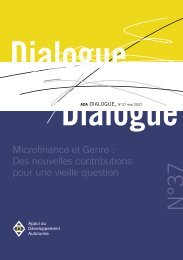5th Annual Conference Nice - European-microfinance.org
5th Annual Conference Nice - European-microfinance.org
5th Annual Conference Nice - European-microfinance.org
Create successful ePaper yourself
Turn your PDF publications into a flip-book with our unique Google optimized e-Paper software.
50<br />
5 th <strong>Annual</strong> <strong>Conference</strong> <strong>Nice</strong><br />
Commisioner Hübner on the announcement of an action plan on microcredit: ‚[T]here has<br />
already been a great deal of cooperation within the Commission, and there is enormous<br />
interest in the development of micro-finance’ (Hübner 2006: 7).<br />
Following Princen and Rhinard’s framework such a development is part of a low politics<br />
route of agenda-setting, on which the growing engagement with a given issue at lower levels<br />
of policy-making creates a self-sustaining dynamic that leads to “a point of no return” in<br />
expanding the activity toward high level institutions. (vgl Princen/Rhinard 2006: 1122).<br />
Conclusion<br />
The main findings of the research underline the important role of the <strong>European</strong> <strong>microfinance</strong><br />
community, the EMN and its president Ms. Nowak in the process of positioning <strong>microfinance</strong><br />
as a policy issue at EU-level. The analysis also showed that the influence of the <strong>microfinance</strong><br />
experts was highest during the phase of issue specification and that they were successful in<br />
using their technical expertise on the issue of <strong>microfinance</strong> provision to shape the dominant<br />
policy image of <strong>microfinance</strong> at the EU-level to fit their position toward the issue.<br />
Another key result is the finding that the success of <strong>microfinance</strong> as a policy issue at EU-level<br />
was strongly connected to the availability of accessible policy venues, mainly thanks to the<br />
Open Method of Coordination in social and economic policy. The observation that the<br />
specification of <strong>microfinance</strong> as a tool in structural policy was characterised by a stronger<br />
influence of the Commission and member state actors of regional policy, strengthens the<br />
thesis that the institutional conditions of the different policy venues were an important factor<br />
regarding the involvement and influence of the <strong>microfinance</strong> community.<br />
Since the <strong>European</strong> initiative on the development of microcredit” demarks a new step in the<br />
issue career of <strong>microfinance</strong> it will be interesting to see how future changes in the EU modes<br />
of governance will affect accessibility to the EU policy-making for the <strong>European</strong> <strong>microfinance</strong><br />
community. Since decision-making in the <strong>European</strong> Union is characterised rather by the use<br />
of power resources and bargaining than by knowledge and technical expertise, it will become<br />
more difficult to <strong>org</strong>anise the consensus needed to pass policy measures for the development<br />
of <strong>microfinance</strong> in Europe. But the chances for continuous political momentum are good,<br />
since the research showed, that the success of bringing <strong>microfinance</strong> to the institutional<br />
agenda of the EU could be traced back to the fact that the issue of <strong>microfinance</strong> received<br />
support as well form the institutional top as form the base of the <strong>European</strong> Union.<br />
References<br />
Baumgartner, Frank R. and Jones, Bryan D. (1993): Agendas and instability in<br />
American politics: Chicago [et.al.].<br />
Cobb, R.W. und Elder, C.D. (1972): Participation in American Politics: The Dynamics of<br />
Agenda-Building, Baltimore.<br />
Copisarow, Rosalind (2004): Street UK: Lessons learned after its first 3 years'<br />
operations: London.<br />
EUROFI (2006): The development of microcredit in the <strong>European</strong> Union - A tool for<br />
growth and social cohesion - Executive Summary , Paris.<br />
<strong>European</strong> Commission (2001): Commission staff working paper: Enterprises' access to<br />
finance, SEC (2001) 1667, Brussels.<br />
<strong>European</strong> Commission (2002): Guide to Risk Capital Financing in Regional Policy,<br />
Brussels.<br />
<strong>European</strong> Commission (2003): Microcredit for Small Business and Business Creation:<br />
Bridging a Market Gap, Brussels.


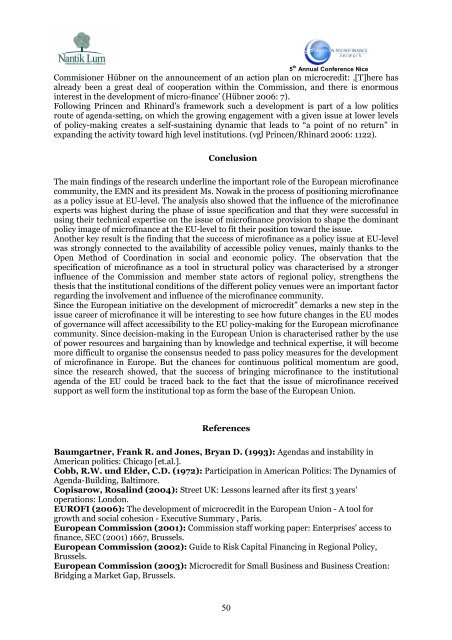
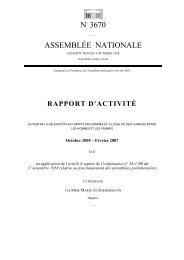
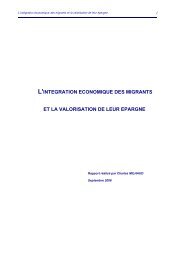
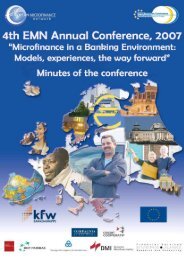
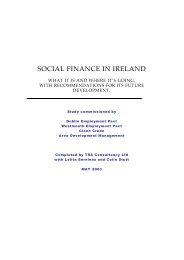
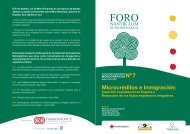
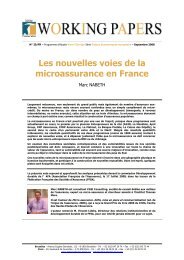
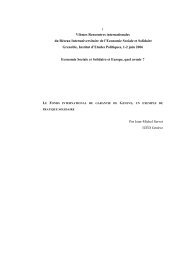
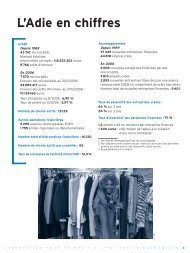
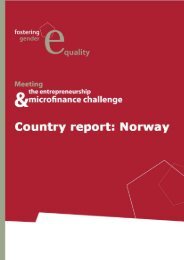
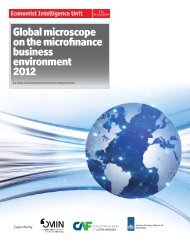
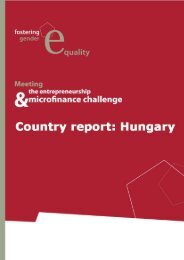
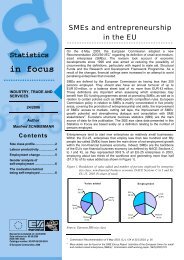
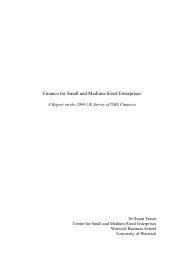
![Joint Report on Social Protection and Social Inclusion [2005]](https://img.yumpu.com/19580638/1/190x132/joint-report-on-social-protection-and-social-inclusion-2005.jpg?quality=85)
